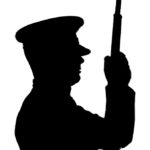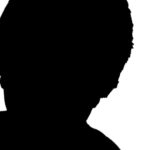‘The Dreams of William Golding’ was an illuminating, and often rather moving portrait of William Golding, directed by Adam Low. Low was granted access to Golding’s unpublished ‘dream diaries’, read in the film by Golding’s daughter Judy, and the documentary featured a number of interviews with Golding’s family and friends, as well as archive footage of Golding himself.
The extraordinary novels written by Golding throughout his career were given centre stage in the film; beginning with the obvious Lord of the Flies and ending with his Sea Trilogy – Rites of Passage, Fire Down Below and Close Quarters. The trilogy had been filmed by the BBC in 2005 and its award-winning star, the rather wonderful Benedict Cumberbatch, also featured in this documentary, reading extracts from Golding’s novels.
The programme begins with Judy Golding remembering the night Golding died, in his house in Cornwall. She recalls that he had been drinking and at some point must have gone to his son’s room and sat on the sofa. Judy believes he must have seen the sun from the east-facing window before he died. Golding’s biographer, John Carey, tells how Golding couldn’t be alone at night – he always needed the light on. This was no doubt due to his frequent nightmares which he described in his unpublished ‘dream diaries’ which amount to over two million words. Judy reads from the diaries throughout the programme, revealing some terrifying images which clearly haunted Golding. For instance, in his entry on Dec 13 1971, Golding writes that the dream takes place at his childhood home. His brother Jose (but not actually his brother Jose since the character in the dream is taller and stronger) has got hold of a baby and a knife. He stretches the baby’s arms out to resemble a crucifix and begins to dissect the baby’s hands and fingers while the baby wails. Golding is terrified and revolted but can either not do anything or is too terrified to do so. He also had a recurrent nightmare in which he is hanged.
Golding was a school teacher when Lord of the Flies was published and archive footage of him teaching his class at Bishop Wordsworth’s School in 1959 is nicely cut with modern day film of pupils at the school studying the novel. Nigel Williams, who later adapted Lord of the Flies for theatre, states that ‘the novel could only have been written by someone who had been a schoolmaster’. We are shown the original manuscript, which had been written in a school exercise book, and the narrator reveals that much of the novel was written in school time. Golding’s pupils recalled being asked to count the words in his later manuscripts!
Golding’s appearance on the South Bank Show in 1980 shows his preoccupation with the English class system and he reveals the class divisions of his childhood in Marlborough, Wiltshire. Presenter Melvyn Bragg recalls that Golding was just coming out of a deep depression and needed some persuasion to do the show. In 1930, Golding went to Brasenose College in Oxford where he was the only grammar school boy. Just before graduation, the University Appointments Committee (which told graduates where their career may lie), wrote that Golding was ‘Not top drawer’ (NTD) … not quite a gentleman … would be all right for a day school but not a public school’. Golding’s struggle with the inequalities in English society is later a main feature in his novel The Pyramid.
The documentary does not flinch away from portraying the struggles of Golding and his family. Judy reveals the extent of Golding’s self-loathing and resulting drinking problem and says: ‘after a while he would drink it as if he disliked it. As if it was evil-tasting medicine’. Judy’s older brother, David, suffered a mental breakdown whilst a student at Oxford and in the interview, David states that this was due to a ‘bio-chemical imbalance’, possibly caused by Ann Golding having contracted German measles when pregnant. Judy states that David’s life-long illness was Golding and Ann’s ‘great tragedy’.
In 1966, an American student, Virginia Tiger, contacted Golding as she was studying his work. He usually declined such requests but met Tiger in Salisbury. Judy thinks that Golding fell in love with Tiger and Tiger herself felt that Golding was infatuated with her. However, she strongly denies any kind of love affair although concedes that Golding’s wife suspected that there was.
After the family’s boat Tenace collided with another ship and after the strain Golding’s friendship with Tiger had placed on his marriage, Golding sank into a deep depression. Golding wrote in his diary that ‘life seemed pointless’ in 1971 and found it impossible to write. Having recovered from this desperate period of writer’s block, Golding’s novels of the late 70s and 80s were immensely successful and he was awarded the Nobel Prize in 1983 and the Booker Prize in 1980 for Rites of Passage.
Perhaps the most impressive aspect of the documentary is the inclusion of Golding’s novels. Adam Low shows just how relevant they still are today by interspersing the readings and film footage with contemporary images. For instance, the bestselling author Stephen King reminiscences about reading Lord of the Flies in 1960 and places the book in the context of 1960s America: civil rights unrest and the Vietnam War. He identified with the novel because of its realism: ‘The difference [in Lord of the Flies] was that they acted like real boys’. One of the pupils at Bishop Wordsworth’s School points out that the disregard for rules and order in the novel has a striking similarity with the riots that swept across England in the summer of 2011 and Low adds news footage to illustrate this. With regard to The Spire, a novel about Dean Jocelin’s obsession with the erection of a spire, Golding says: ‘any human endeavour can never be wholly good; it must always have a cost in people. Jocelin was a fanatic and we are in the presence of religious fanaticism. Its cost in suffering, death and sorrow is immeasurable’. Here, Low displays images of the 7/7 bombings and terrorist attacks; Golding’s novels, it seems, were often prophetic.

